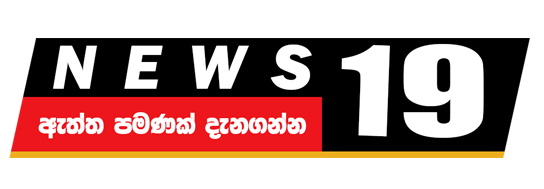China’s drive to promote the use of its national currency, the Renminbi (RMB), continues to gain momentum with Multilateral development banks (MDBs) taking on some significant efforts to internationalize RMB.
Part of this strategy is the internationalization of RMB, which will provide China with a viable alternative to the dollar, euro, and yen, insulating the country from the intensifying US sanctions in the coming years.
The RMB is the official currency of the People’s Republic of China, and it is also known as the Yuan. The efforts to globalize the RMB are part of China’s broader strategy to increase its influence in the global economy and promote the use of the RMB as an international reserve currency.
The RMB’s internationalization will also help insulate the Chinese economy against intensifying US sanctions in the near term. The RMB’s global use has become a defining space in which China seeks to assert its global role.
In this context, Multilateral development banks (MDBs), such as the New Development Bank (NDB) and the Asian Infrastructure Investment Bank (AIIB), play a significant role in China’s efforts to internationalize money. These institutions provide financing for infrastructure projects in developing countries, and their investments are often made in RMB.
The AIIB was established in 2015 with the aim of promoting economic development in the Asia-Pacific region. It has become one of the fastest-growing multilateral development banks in history, with 103 member countries and a capital base of $100 billion. The NDB, also known as the BRICS bank, was established in 2014 by Brazil, Russia, India, China, and South Africa to finance infrastructure and sustainable development projects in emerging economies. It has a capital base of $100 billion and has approved loans worth over $16 billion since its inception. Both the AIIB and NDB have been actively promoting the use of the RMB in their operations. The AIIB issued its first RMB-denominated bond in 2019, raising RMB 3 billion ($435 million) in the Chinese domestic market. The NDB has also issued RMB-denominated bonds in China, as well as in London and Hong Kong. In addition, both banks have established RMB clearing arrangements with Chinese banks, which allow them to settle transactions in RMB.
Moreover, MDBs increasingly use RMB as a settlement currency in their lending operations, which promotes the use of RMB in global finance. However, the limited global use of RMB, exchange rate risks, competition from other established currencies, and political instability and risk caused by geopolitical tensions are significant challenges to RMB internationalization. These enormous structural challenges include concerns about exchange rate risks and declining investor confidence in the RMB. The US dollar continues to be the most sought-after global currency and serves as the de facto global reserve currency, giving the US unique monetary policy tools and advantages.
China’s promotion of the use of RMB for MDB-related transactions is part of Beijing’s broader push towards de-dollarizing the global economy. Multilateral development banks, such as the AIIB and NDB, are significant stakeholders in China’s efforts to internationalize RMB. However, like the NDB, the AIIB faces similar challenges in terms of currency internationalization. The NDB’s primary policy objective is to finance infrastructure and sustainable development projects in emerging economies. RMB internationalization is a key component of NDB policy.
The NDB was the first multilateral development bank to issue bonds denominated in RMB with the inaugural issue of three billion bonds in July 2016. Furthermore, the NDB has established a RMB-financed lending facility to support member countries’ infrastructure and sustainable development projects. The BRI is a key component of the AIIB’s efforts to internationalize the Chinese currency. About one-third of all loans held by the AIIB are directly related to the financing of BRI projects. The RMB-related financial services offered by the AIIB overlap with those offered by the NDB. The AIIB has issued RMB-denominated bonds to raise funds for its lending activities while providing RMB-denominated loans to borrowers. Although some developing economies in Africa, Asia, and South America have begun to use the RMB in dealings with China, the structural dominance of other currencies, particularly the dollar, will continue to limit the degree to which other countries adopt RMB internationalization.
Besides, the use of RMB in cross-border transactions is more prominent in countries that have seen large inflows of Chinese investment as part of the BRI. However, there is less willingness to use RMB in other transactions where other currencies remain the most dominant choice.
In conclusion, China’s promotion of the use of RMB for international transactions, investments, and central bank reserves is part of its broader economic policy to challenge the dominance of the US dollar in the global financial-economic system. Multilateral development banks, such as the NDB and the AIIB, play a significant role in this effort. However, the limited global use of RMB, exchange rate risks, competition from other established currencies, and political instability and risk caused by geopolitical tensions are significant challenges to RMB internationalization. While some developing economies have begun to use RMB in dealings with China, the dominance of other currencies, particularly the dollar, will continue to limit the degree to which other countries adopt RMB internationalization.








